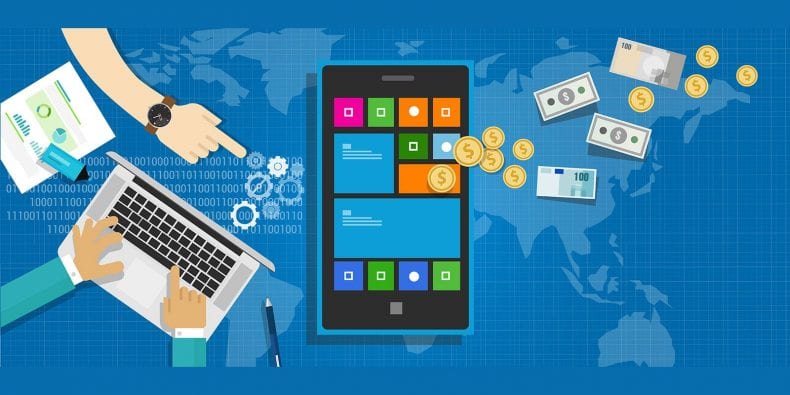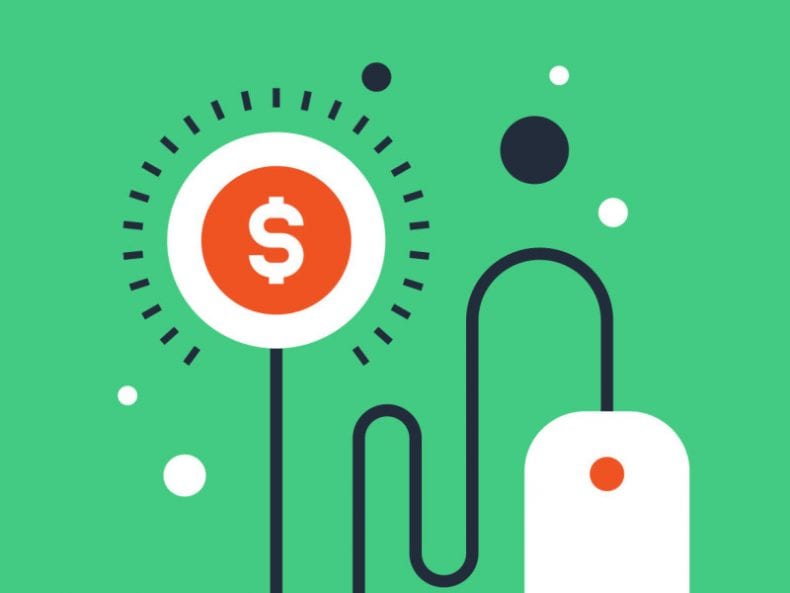If you are an entrepreneur and you create an original app, chances are you’re doing it because you ultimately want to sell it. Even if you develop an app but don’t have immediate plans to sell it, knowing how to value it can help you develop with the right goals in mind.
Valuation is a critical component of selling an app, but many entrepreneurs aren’t sure where to even begin when it comes to putting a value on their app.
App development platform Buildfire outlines some of the overall factors to consider in app valuation. These include:
- Financials
- Operations
- Customer Base
- Niche
So, what should you know beyond these general considerations if you’re valuing your app for any reason or plan to in the future?

Establishing Earnings
The first step to valuing an app is to determine what your earnings are. Then once you have this foundational metric, you can move on and look at other factors that determine value. Buildfire outlines two different ways you can determine baseline earnings.
One is SDE which looks at revenue as the cost of goods sold minus the operating expense plus owner compensation. SDE stands for seller’s discretionary earnings.
Another method is Earnings Before Interest, Taxes, Depreciation, and Amortization or EBITDA, which is the industry standard for the valuation of bigger companies. This takes into account revenue minus expenses plus depreciation and amortization.
Growth Rate

There are other factors you can use to value an app. You can look at your growth rate, although if you’re a startup, this one can be a bit tougher. For example, you may be in a period of very little growth if you’re in startup mode.
However, once you’re past the earliest days of being a startup, you should have a period where you’re growing quickly. It’s important that you achieve that if you want to have an app with value.
There are some specific ways you can measure your growth rate. You can use Google Analytics for Mobile Apps as one example. Start using analytics tools as early on as possible because you want to be able to show patterns of growth.
User Engagement
Valuing an app can be a little different than valuing other businesses, particularly in the metrics you can use. User engagement can be a really big one with an app for example.
As an example, Snapchat had a valuation in the tens of billions and a lot of that stemmed from the level of engagement users had on average.
Even if you don’t have huge sales and the most impressive financials, if you have good engagement your app may be worth more. Engagement can also be a strong way to predict future sales.
Abandonment
Oppositional to user engagement is abandonment. It refers to a scenario where people download your app but don’t ultimately use it. It is one of the biggest challenges you’ll likely face when you create an app, and statistics show one in four apps are abandoned after being used only once.
If you have high abandonment rates, it’s going to diminish the value of the app.
Before you try to sell or convince investors of your app’s value, you need to work on getting to the bottom of your high abandonment rate. You’ll have to identify key points where users drop-off and remedy those, otherwise your value is going to suffer greatly.
Another metric that relates to engagement and abandonment is active users. A lot of times when it comes to valuing an app, active users is one of the most relevant metrics beyond downloads.

How Will Your App Respond to Change?
Let’s say your app is focused on one core function. Right now it’s great because there’s not a lot of competition and there’s high demand for that one function. What would happen, however, if there were changes in the marketplace? How would your app fare?
Maybe your app is vulnerable to predictable changes, or could it be disrupted by a change no one saw coming? Even a change on the App Store could significantly impact an app, and particularly if it’s focused on one function or one specific type of monetization.
Finally, while it’s not as important as you might initially think, the number of downloads does have relevance in the valuation process. Of course, you want people to download the app. Otherwise, it’s not possible to measure any of the other metrics. Measuring downloads is also one of the easiest metrics on this list.
…………









